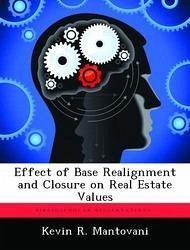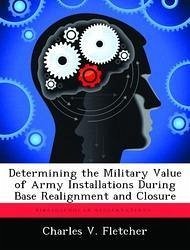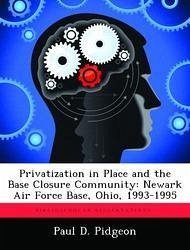Nicht lieferbar

Effect of Base Realignment and Closure on Real Estate Values
Versandkostenfrei!
Nicht lieferbar
This thesis offers a quasi-experimental analysis of the effect of a base closure (BRAC) on real estate values across a twenty-eight-community sample. A hedonic valuation model was used to estimate this effect in quasi-experimental setting on a sample population consisting of single-family homes aggregated by zip code census data surrounding twenty-eight active and closed military installations. A test for sample bias to evaluate the treatment and comparison samples was developed and tested on these data, confirming the appropriateness of the sample. This study has determined that an installati...
This thesis offers a quasi-experimental analysis of the effect of a base closure (BRAC) on real estate values across a twenty-eight-community sample. A hedonic valuation model was used to estimate this effect in quasi-experimental setting on a sample population consisting of single-family homes aggregated by zip code census data surrounding twenty-eight active and closed military installations. A test for sample bias to evaluate the treatment and comparison samples was developed and tested on these data, confirming the appropriateness of the sample. This study has determined that an installation closure (BRAC) has no significant positive or negative effect on real estate values in the surrounding area. While there were communities in the sample that experienced very positive median home value growth between 1990 and 2000, and others whose homes declined in value, the overall impact of BRAC was not statistically different from zero. From a policy perspective, this study cannot identify whether government assistance programs associated with base closures may have served to offset any potentially negative effects on real estate values. As this study finds no significant relationship between BRAC and real estate values, the current policies designed to mitigate the potential ill effects of base closing on the local economy may be working as intended.








![Instant Tax Relief for Real Estate Agents: 448 Audit-Proof Deductions, Credits, Loopholes, and Strategies [With CDROM] Cover Instant Tax Relief for Real Estate Agents: 448 Audit-Proof Deductions, Credits, Loopholes, and Strategies [With CDROM]](https://bilder.buecher.de/produkte/59/59830/59830474n.jpg)


